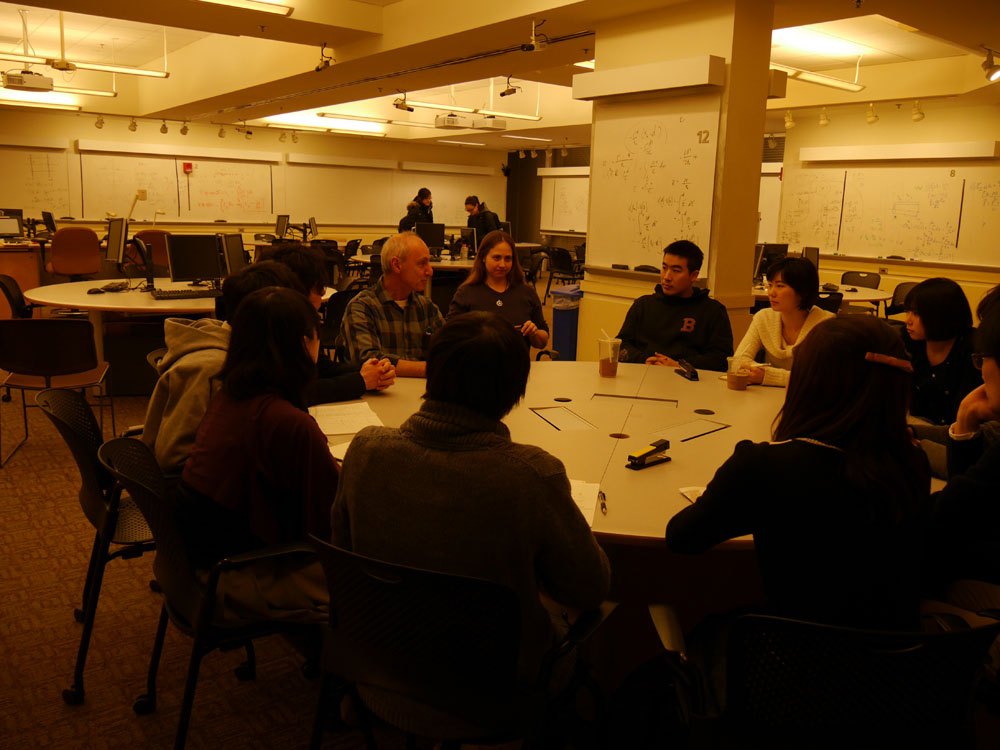The students were selected from the M-Skype and K-Skype classes of 2013 according to the participation and their essays on "How can you make this class valuable?".
The participating students met with the 12 MIT students that had been their skype partners during the semester and attended their VFT (Very Fast Track) Japanese language class. The program is called VFT because these MIT students take 2 hours of Japanese lessons every weekday for about two months to cover the curricula which are normally covered in six months. The VFT students presented about MIT secrets in very well spoken Japanese, and took the UT students out and showed the campus after the class.
The next day, a lunch with Japanese graduate students studying at MIT was held and UT students asked them how they prepared their applications for the graduate school at MIT. After the lunch, our students also had an opportunity to visit the Technology Enhanced Active Learning (TEAL) classroom for Physics and had a long discussion with the lecturer of the class. The UT students asked several penetrating questions which deeply impressed the lecturer.
The next day, a Media Lab tour was held by one of the faculty members at MIT and UT students were able to see various attractive laboratories in the Media Lab. After the tour, students joined the "Cool Japan" event, where some lectures and music performances were held.
On the final day, we were invited to the Teaching Learning Center at Harvard University. Students were able to ask various questions about teaching, especially about the difference between teaching American and international students.
Some of the students even had opportunities to visit some laboratories concerning their specific fields of study, because they had made appointments in advance. In the end, even a student who had never travelled overseas came to have confidence in asking questions in English and all the participants were highly motivated to work on their own internationalization.





